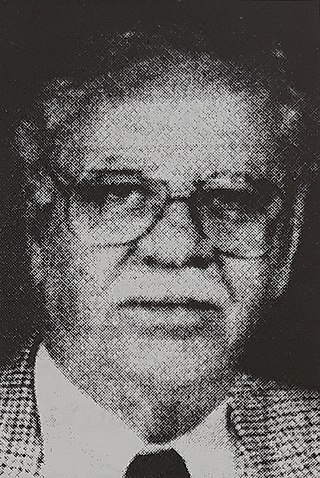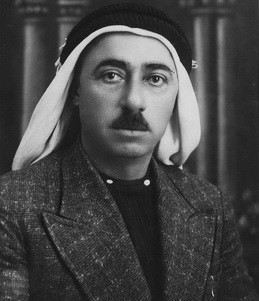Related Research Articles

A popular uprising by Palestinian Arabs in Mandatory Palestine against the British administration of the Palestine Mandate, later known as The Great Revolt or The Great Palestinian Revolt, or the Palestinian Revolution, lasted from 1936 until 1939, demanding Arab independence and the end of the policy of open-ended Jewish immigration and land purchases with the stated goal of establishing a "Jewish National Home".

Yishuv, HaYishuv HaIvri, or HaYishuv HaYehudi Be'Eretz Yisra'el denotes the body of Jewish residents in Palestine prior to the establishment of the State of Israel in 1948. The term came into use in the 1880s, when there were about 25,000 Jews living in that region, and continued to be used until 1948, by which time there were some 630,000 Jews there. The term is still in use to denote the pre-1948 Jewish residents in Palestine, corresponding to the southern part of Ottoman Syria until 1918, OETA South in 1917–1920, and Mandatory Palestine in 1920–1948.

The Peel Commission, formally known as the Palestine Royal Commission, was a British Royal Commission of Inquiry, headed by Lord Peel, appointed in 1936 to investigate the causes of conflict in Mandatory Palestine, which was administered by the United Kingdom, following a six-month-long Arab general strike.

Awni Abd al-Hadi, aka Auni Bey Abdel Hadi was a Palestinian political figure. He was educated in Beirut, Istanbul, and at the Sorbonne University in Paris. His wife was Tarab Abd al-Hadi, a Palestinian activist and feminist.
The Palestinian people are an ethnonational group with family origins in the region of Palestine. Since 1964, they have been referred to as Palestinians, but before that they were usually referred to as Palestinian Arabs. During the period of the British Mandate, the term Palestinian was also used to describe the Jewish community living in Palestine.

During the British rule in Mandatory Palestine, there was civil, political and armed struggle between Palestinian Arabs and the Jewish Yishuv, beginning from the violent spillover of the Franco-Syrian War in 1920 and until the onset of the 1948 Arab–Israeli War. The conflict shifted from sectarian clashes in the 1920s and early 1930s to an armed Arab Rebellion against British rule in 1936, armed Jewish Revolt primarily against the British in mid-1940s and finally open war in November 1947 between Arabs and Jews.

al-Najjada was a Palestinian Arab paramilitary scout movement formed in Jaffa, British Mandate of Palestine on 8 December 1945. The organisation was headed by Muhammad Nimr al-Hawari as General Commander and Rashad al-Dabbagh as Secretary General. The al-Najjada HQ was on Railway Station Street Jaffa. Its officers were mainly Arabs who had served in the British Army. During the lead into the 1948 war its membership numbered 2,000 to 3,000 but the organisation lacked arms. The Palestinian Arab revolt of 1936–1939 led to an imbalance of power between the Jewish community and the Arab community, as the latter had been substantially disarmed. The British had estimated al-Najjada strength as 8,000 by mid-1946.

Rashid al-Haj Ibrahim (1889–1953) was a Palestinian Arab banker and a leader of the Independence Party of Palestine (al-Istiqlal). He was one of the most influential Arab leaders of Haifa in the first half of the 20th century and played a leading role in both the 1936–39 Arab revolt and the 1948 Battle of Haifa.
The Cement Incident took place in the port of Jaffa in Palestine on 16 October 1935. While Arab dockers were unloading a consignment of 537 drums of White-Star cement from the Belgian cargo ship Leopold II, which were destined for a Jewish merchant called J. Katan in Tel Aviv, one drum accidentally broke open spilling out guns and ammunition. Further investigation by British Mandate officials revealed a large cache of smuggled weapons, comprising 25 machine guns, 800 rifles and 400,000 rounds of ammunition contained in 359 of the 537 drums, but because the merchant was not identified and the final destination was not uncovered, no arrests were made.

Events in the year 1938 in the British Mandate of Palestine.

Events in the year 1936 in the British Mandate of Palestine.

Abd al-Rahim al-Hajj Muhammad Al Saif, also known by his kunya Abu Kamal, was a prominent Palestinian Arab commander of rebel forces during the 1936–39 Arab revolt against British Mandate rule and increased levels of Jewish settlement in Palestine. Most of his activities were based in the areas of Tulkarm, Nablus and Jenin. In September 1938, he became the General Commander of the Revolt, although he shared the post in rotation with Arif Abd al-Raziq. In February 1939, al-Hajj Muhammad was given sole title to the post by the revolt's political leadership, but was killed the following month in a fire-fight with British forces.
The 1933 Palestine riots were a series of violent riots in Mandatory Palestine, as part of the intercommunal conflict in Mandatory Palestine. The riots erupted on 13 October 1933 when the police broke up a banned demonstration organized by the Arab Executive Committee. The riots came as the culmination of Arab resentment at Jewish migration after it surged to new heights following the rise of Nazi Germany, and at the British Mandate authorities for allegedly facilitating Jewish land purchases. The second mass demonstration, at Jaffa in October, turned into a bloodbath when police fired on the thousands-strong crowd, killing 19 and injuring some 70. The "Jaffa massacre", as Palestinians called it, quickly triggered further unrest, including a week-long general strike and urban insurrections that resulted in police killing 7 more Arabs and wounding another 130 with gunfire.

The London Conference of 1939, or St James's Palace Conference, which took place between 7 February – 17 March 1939, was called by the British Government to plan the future governance of Palestine and an end of the Mandate. It opened on 7 February 1939 in St James's Palace after which the Colonial Secretary, Malcolm MacDonald held a series of separate meetings with the Arab Higher Committee and Zionist delegation, because the Arab Higher Committee delegation refused to sit in the same room as the Zionist delegation. When MacDonald first announced the proposed conference he made clear that if no agreement was reached the government would impose a solution. The process came to an end after five and a half weeks with the British announcing proposals which were later published as the 1939 White Paper.

Mandatory Palestine was a geopolitical entity that existed between 1920 and 1948 in the region of Palestine under the terms of the League of Nations Mandate for Palestine.

The Arab Higher Committee or the Higher National Committee was the central political organ of Palestinian Arabs in Mandatory Palestine. It was established on 25 April 1936, on the initiative of Haj Amin al-Husayni, the Grand Mufti of Jerusalem, and comprised the leaders of Palestinian Arab clans and political parties under the mufti's chairmanship. The committee was outlawed by the British Mandatory administration in September 1937 after the assassination of a British official.
This is a timeline of intercommunal conflict in Mandatory Palestine.

Palestinian nationalism is the national movement of the Palestinian people that espouses self-determination and sovereignty over the region of Palestine. Originally formed in the early 20th century in opposition to Zionism, Palestinian nationalism later internationalized and attached itself to other ideologies; it has thus rejected the occupation of the Palestinian territories by the government of Israel since the 1967 Six-Day War. Palestinian nationalists often draw upon broader political traditions in their ideology, such as Arab socialism and ethnic nationalism in the context of Muslim religious nationalism. Related beliefs have shaped the government of Palestine and continue to do so.
The 1936 Tulkarm shooting of two Jews on the road between Anabta and Tulkarm took place in British Mandatory Palestine. Jews retaliated the next day against Arabs in Tel Aviv and killed two in Petah Tikvah.

The Jaffa riots of April 1936, refers to a spate of violent attacks on Jews that began on 19 April 1936 in Jaffa. A total of 14 Jews and 2 Arabs were killed during the riots. The event is often described as marking the start of the 1936–1939 Arab revolt in Palestine.
References
- ↑ Anderson, Charles W. (January 2021). "Other Laboratories: The Great Revolt, Civil Resistance and the Social History of Palestine". Journal of Palestine Studies. 50 (3): 47–51 – via Taylor & Francis Online.
- ↑ Horne, 2003, p. 208.
- 1 2 3 4 Peel Commission Report Cmd. 5479, 1937, p. 96.
- ↑ Krämer, 2008, p. 272.
- ↑ Peel Commission Report Cmd. 5479, 1937, p. 97.
- ↑ A History of Palestinian Resistance, Daud Abdullah
- ↑ Kayyālī, 1978, p. 193.
- ↑ Norris, Jacob (2008). Repression and Rebellion: Britain's Response to the Arab Revolt in Palestine of 1936-39. The Journal of Imperial and Commonwealth History 36(1):25–45.
- ↑ Our Roots are still alive, J Bonds